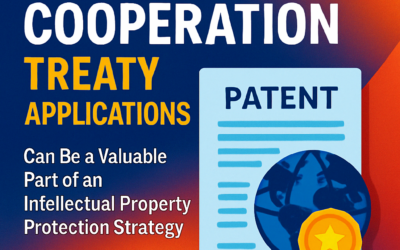Art has always been about connection, and in the past few years, it has become increasingly interactive. This was the conceit behind the teamLab art collective in Tokyo. Their digital art museum exhibits allowed guests to wander through massive, colorful light installation with lights that moved and reacted to the movements of guests.
Recently, however, teamLab has accused another museum, the LA based Museum of Dream Space (MODS), of infringing on their copyright for this art exhibit and experience. This isn’t the first time teamLab has sued someone over someone over their copyright. In one notable case, they won against a Chinese company with similar exhibits named, obviously enough, Teamlab Borderless. The MODS case, however, seems a bit more complicated.
The Story
teamLab first opened their Digital Art Museum in Tokyo in 2018. Since that time, their work has been featured in permanent collections worldwide, including the Museum of Contemporary Art in Los Angeles. teamLab claims that MODS copied two of their previous exhibits: a 2015 piece named “Crystal” and a 2017 piece called “Boundaries.” The exhibits bear similar features, such as artwork on either side of a waterfall light feature that creates a star-like atmosphere.
MODS, on the other hand, claims that teamLab has no case because they lacked a US copyright and the exhibit took place in Los Angeles. They also claim that teamLab would not have been able to copyright these features as they are not unique to teamLab and/or protectable. MODS also went on to question whether interactive art can be copyrighted, since it is transformative in nature and different in every experience. Since these types of art exhibits are still relatively recent, it may be some time before we see solid legal precedents specific to the scenario of interactive light exhibits.
What Could teamLab Have Done Differently?
The case is still underway, with a teamLabs suit filed in 2019 and a MODS response released in the past couple of months. Until the evidence is fully considered by the court, it’s hard to say how this case will turn out. However, it does prove a somewhat teachable moment for artists hoping to copyright their work. Here are a few things that might strengthen your case in similar situations:
Register an International Copyright
When you register a copyright with the USPTO, you are registering that copyright for the United States. There is no global copyright law, however, so this protection doesn’t extend to other countries, other than a ratified treaty called the Berne Convention. The Berne Convention, entered into by 180 countries globally, sets a minimum standard of intellectual property rights for works around the globe, but minimum is the keyword here.
If you want your work to truly be protected in other countries, it’s a good idea to register copyright in any country you intend to share your art. If your art is featured in a museum in Tokyo, talk to your IP attorney about registering a copyright in Japan. If you do a show in Dublin, you might register a copyright in Ireland. It can be complicated and taxing to cover your tracks, but it’s important, which is why it helps to have a copyright expert for legal counsel to make sure your work stays protected.
Verify That Your Art Is Truly Unique To You
MODS claims that the features teamLab calls a copyright violation are not original to teamLab or not protectable under US copyright. Without the evidence before us, it’s difficult to say whether or not that’s true. It is, however, important that the art pieces you copyright are original to you. Before sharing it with the world, have your intellectual property attorney do some research to ensure that the piece is unique and will hold up under copyright registration. Establishing this beforehand will help if someone tries to claim that your work is not protectable under copyright.
Know What Can Be Copyrighted
Copyrights are designed to protect finished works of art. You can’t copyright your trademark art style, nor can you copyright ideas or mediums. In art, there are often instances of artists finding inspiration from another artist and using that as a basis for their work. However, there’s a difference between finding inspiration or trying a similar medium and infringing on someone’s copyright. It’s important to have an understanding of how copyright can protect your work, and how it can’t.
Copyright laws can be complicated, especially when dealing with international issues. Fortunately, Garcia-Zamor is here to help you protect your copyright to the best of your ability. Your art is your own; someone else shouldn’t get credit for it. Contact Garcia-Zamor today to learn more or to schedule a consultation.







